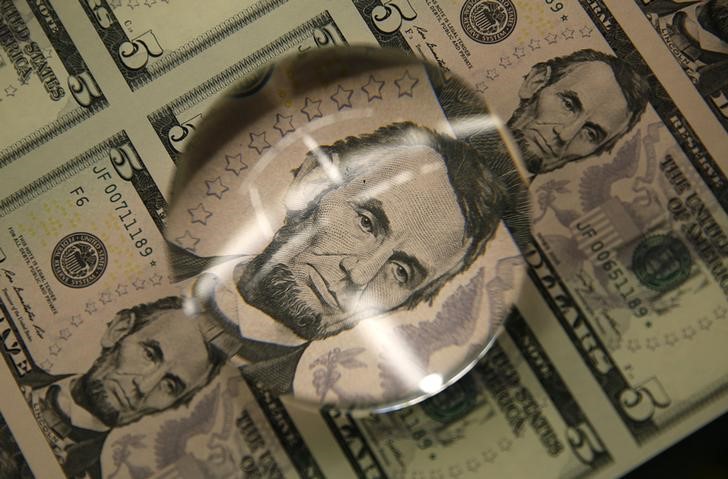
At 04:20 ET (08:20 GMT), the Dollar Index, which tracks the greenback against a basket of six other currencies, traded 0.2% higher at 105.500, climbing away from last week’s roughly one-month low.
The dollar received a minor boost late Tuesday after Minneapolis Fed boss Neel Kashkari suggested that stubborn inflation and a robust economy could persuade the U.S. central bank to keep interest rates unchanged for the rest of this year.
The path of U.S. interest rates continues to dominate the market’s attention, and with no top tier U.S. economic data due this week the opinions of policymakers take on added importance.
Fed Chair Jay Powell basically ruled out more tightening last week, but there exists a great deal of uncertainty over when a move lower will occur.
Investors have no shortage of Fed officials to look forward to on Wednesday, with Vice Chair Philip Jefferson, Governor Lisa Cook and Boston Fed President Susan Collins all due to speak.
Morgan Stanley now expects the Fed to start lowering interest rates from September, compared to its earlier forecast of July, while continuing to see three 25-basis-point rate cuts through the year.
“A reversal in key components points to disinflation ahead, but given the lack of progress in recent months it will take a bit longer for the FOMC to gain confidence to take the first step,” the bank said in a note dated May 7.
In Europe, EUR/USD traded 0.2% lower to 1.0736, after data showed that German industrial production declined 0.4% in March on a monthly basis.
“The renewed contraction in industrial production in March after two months of expansion is a reminder that the German economy is still struggling,” said analysts at Capital Economics.
The European Central Bank has signalled a rate cut in June, but there remains a great deal of uncertainty over what happens with monetary policy after this.
GBP/USD traded 0.3% lower to 1.2473, ahead of Thursday’s meeting of the Bank of England.
The U.K. central bank is not expected to change interest rates this week, there’s speculation that it may guide markets towards a cut as soon as next month – shortly after the ECB is expected to cut on June 6.
In Asia, USD/JPY rose 0.4% to 155.35, with the yen weakening, moving back towards 34-year highs of over 160 hit last week, even as government officials kept up their warnings of more potential intervention in currency markets.
Bank of Japan Governor Kazuo Ueda said on Wednesday the central bank may take monetary policy action if yen declines affect prices significantly, while the country’s Finance Minister Shunichi Suzuki repeated a warning that authorities were ready to respond to excessively volatile moves in the currency market.
AUD/USD fell 0.4% to 0.6568, extending steep declines from the prior session after the Reserve Bank of Australia struck a less hawkish tone than traders were expecting.
While the RBA held rates steady and warned that inflation will remain sticky in the coming months, it stopped short of threatening to hike rates further – a scenario that had been priced into the Aussie in the lead-up to the meeting.
To read the full article, Click Here
